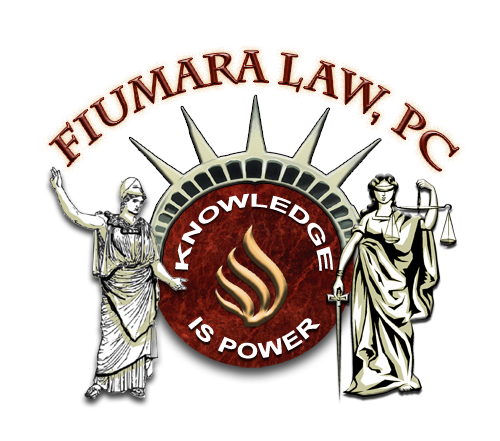Review two news articles written about Mr. Fiumara’s strong advocacy for students: ”
Class Action” and “Less than zero”
********
Mr. Fiumara has been advocating for students in the schools for over 20 years. In 1991 he was hired by the Santa Rosa City School District as a “Community Worker” and worked as a liaison between the school administration and the parents of mostly Latino students. In the capacity as”Community Worker,” Mr. Fiumara learned the inner workings of California school district politics, policy and procedure. It was not until after a student was attacked by a teacher wielding a knife up to his throat that Mr. Fiumara resigned from his position with the school district and sued his former employer. This is the kind of advocacy, zeal and passion that Mr. Fiumara brings to his cases when he represents students of the California school system. He is not the least bit deterred.
Parents do not realize that they have been granted many rights before their children can be suspended or expelled. Under California Education Code section 49063:
“School districts shall notify parents in writing of their rights under the Code . . . in the same language as the pupil speaks, whether it’s Spanish or Chinese. This right includes the right of the parent to access pupil records, especially when it comes to expulsion hearings.”
Under California Education Code section 49069:
“Parents of currently enrolled or former pupils have an absolute right to access to any and all pupil records related to their children that are maintained by school districts or private schools.”
The school districts are required to adopt procedures for granting of these rights and no one should be denied access to records and other information that will be vital in your child’s expulsion hearing.
Most parents do not even know that they have a procedural and formal right to challenge the content of records under California Education Code section 49070. Parents have an absolute right under California Education Code section 49070 to challenge the content of their child’s record, including disciplinary record for suspensions and expulsions for the following reasons:
- If these records are inaccurate.
- If there is an unsubstantiated conclusion or inference. This has also been extended to bias.
- If there is a conclusion or inference outside of the observer’s area of competence. This is very important in expulsion hearings.
- If the records are not based on the personal observation of a named person with the time and place of the observation noted.
- If the records are misleading.
- If these documents and/or records are in violation of the privacy of other rights of the pupil. This very broad language helps a student enormously when brought out by the right attorney!
Mr. Fiumara has conducted at least 50 expulsion hearings during the course of his practice in the greater Santa Rosa area in all kinds and types of school districts. California Education Code section 48900, et al, provides the grounds for suspension or expulsion, but the following questions keep coming up and Mr. Fiumara may be able to help you with many of these.
Common Questions That Parents Ask:
-
- Can a principal expel a student from school?
No. California law only authorizes principals and superintendents to recommend the expulsion of a student to the school board. Only the school board has the power to expel a student.
-
- What are the reasons that a student can be expelled?
Generally speaking, students can only be expelled for the same reasons for which they can be suspended. California Education Code section 48915 classifies expellable offenses into several categories. You should discuss these with the attorney of your choice, depending on what your son or daughter has been charged with for “school-related”� activities.
There are many offenses for which a principal or superintendent may recommend that a student be expelled; however, for certain offenses, the school board must expel a student if the school board determines that the student has committed the offense. These offenses are often referred to as “zero tolerance”or “mandatory expulsion offenses”� and are currently listed in section 48915(c) of the California Education Code. They are as follows:
-
-
- Possessing, selling or otherwise furnishing a firearm.
- Brandishing a knife at another person.
- Selling illegal drugs.
- Committing or attempting to commit a sexual assault or battery.
- Possessing an explosive device.
-
If a school board finds that a pupil committed any of these above-mentioned offenses at school or at a school activity off-campus (including arriving and leaving school), then it must expel the student. Even in this situation, however, the school board has the option of suspending the expulsion instead of expelling the student outright.
Mr. Fiumara has successfully convinced the school board, the school board’s attorney and others to agree that instead of expelling the student, they allow the student back into the school with certain conditions and, after a probationary period, the expulsion will be expunged so that the student’s record remains clean. An expulsion on a pupil’s record could hold the pupil back in a number of professional pursuits, particularly if the student wishes to pursue a career in the military or apply for certain professional licenses in the future.

-
- What limitations or hurdles must the school board need to meet before it can finalize an expulsion decision?
It is critical that before a school board may expel a pupil, it must first find that the student committed the offense at school or at a school activity off-grounds (or in transit to or from school) and that either of the following is true:
-
-
- Other means of correction are not feasible or have repeatedly failed to bring about proper conduct; or
- Due to the nature of the act the student’s presence causes a continued danger to the physical safety of the student or others.
-
Without a continuing danger posed by the pupil in some lower level offenses, the school district is often hard pressed to come up with why they have not even tried to help or try other means of correction, especially if the child has been identified or classified with a disability covered under an Individualized Education Plan (“IEP”�) or under Section 504. Oftentimes, Mr. Fiumara is able to have expulsion proceedings stayed or continued so that the pupil and his or her parents can understand the process and better succeed at defending the pupil’s actions, or avoid an expulsion altogether.
The law requires additional procedures and protections for Special Education students under the California Education Code and for students facing expulsions based on allegations of sexual assault or battery.
-
- Which strict timetables and guidelines must the school district adhere to or face their own punishment?
Before a pupil can be expelled, the school board must hold an expulsion hearing no more than 30 days after the date on which the principal or superintendent recommended expulsion. It is important that this time frame be honored because if the hearing is not held within that time period, any resulting expulsion may be invalid.
The student may also request that the hearing be postponed. Most of the time a postponement is requested because the parents want counsel to represent their child, but the postponement needs to be made in writing. That postponement can be up to 30 calendar days if the student requests it. At times, this additional request for time is crucial to gather evidence and supporting documentation to properly represent the student who is facing severe expulsion consequences.
-
- What rights or procedural due process is the pupil and his or her parents entitled to at an expulsion hearing?
- They have a right to appear at the hearing.
- They have a right to be represented by an attorney or non-attorney advocate. A non-legal advocate is someone the student and/or his or her parents choose to provide assistance at the hearing. At the Law Offices of Michael A. Fiumara we also provide the option of having one of our trained paralegals and/or bilingual assistants present at the hearing to help produce a just result. Monica Verdias formerly worked as a bilingual instructional assistant and program clerk at the Petaluma School District.
- Look over and get copies of all documents that will be used at the hearing. When counsel is involved, we have the opportunity to review the documents days before the hearing.
- The pupil and his or her attorney has the right to question all the witnesses who testify at the hearing.
- The right to question all other evidence presented at the hearing.
- Present all unwritten evidence, including witnesses on the pupil’s behalf.
- The right to use subpoena power at the hearing to bring reluctant witnesses to the hearing.
- What should every parent do before an expulsion hearing?
- As soon as possible, request copies of any school records about your son or daughter that you think would be helpful. Again, you have an absolute right to do this under the California Education Code.
- Obtain copies of all documents that the school plans to use at the expulsion hearing. If you are not represented by counsel, you will get these documents thrown at you at the table immediately before the hearing begins so that you will not even have time to review them. An attorney will demand that they be provided a week or so ahead of time so that witnesses can be subpoenaed and your son’s or daughter’s case can be properly prepared.
- Call a list of all of your witnesses together, including character witnesses for your son or daughter.
- Students have the right to subpoena witnesses through the subpoena process. The student who faces expulsion can force people to come to the expulsion hearing to testify on their behalf. The attorney will request that the school hearing officer issue the subpoenas.
- Last, but not least, the attorney for the pupil can request the right to have the expulsion board hold its hearing as part of a “public meeting.”� The attorney must make this request in writing at least five (5) calendar days before the date of the hearing, otherwise the expulsion hearing will be a closed session. That means closed to the public. Oftentimes, in highly political situations of bias, bullying and other newsworthy issues, it is best that the hearing be open to the public, because the outcome will be better!
- Is there an appeal process if the pupil or parents are dissatisfied with the school board’s decision?
- What rights or procedural due process is the pupil and his or her parents entitled to at an expulsion hearing?
If the parents disagree with the school board or school panel’s decision to expel their student, there is an appeal process that needs to be made within 30 calendar days of the date on which the school board voted to expel the student. These important rights are best addressed by a qualified attorney who has experience in representing pupil’s like
Michael A. Fiumara of the Law Offices of Michael A. Fiumara prior to appealing to the County Board of Education.
The following questions have often surfaced when parents come in. They are:
-
-
- What does it mean for an expulsion hearing to be conducted by a hearing officer or an administrative panel?
- What can students or parents do if they disagree with the expulsion?
- What is a suspended expulsion?
- Is an expelled student entitled to any form of education during the period of the expulsion?
- When can an expelled student return to school?
- Can expelled students enroll in other school districts during the period of expulsion?
- Can students have their expulsions expunged from their record once the expulsion period is over?
-
These are just some of the questions that would best be answered by
Michael A. Fiumara in a confidential consultation in his office, weekdays Monday through Friday, from 8:30 a.m. until 6:00 p.m., and special arrangements made for evenings and weekends.


